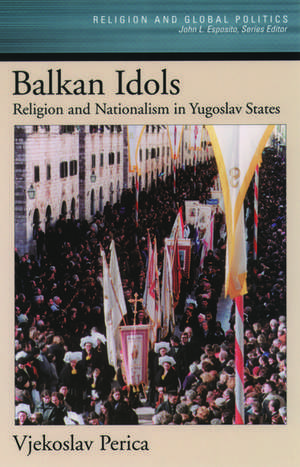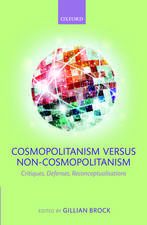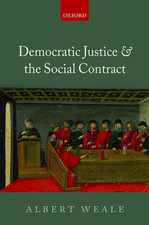Balkan Idols: Religion and Nationalism in Yugoslav States: Religion and Global Politics
Autor Vjekoslav Pericaen Limba Engleză Paperback – 18 mar 2004
Din seria Religion and Global Politics
- 8%
 Preț: 190.80 lei
Preț: 190.80 lei - 27%
 Preț: 340.62 lei
Preț: 340.62 lei - 11%
 Preț: 169.48 lei
Preț: 169.48 lei - 22%
 Preț: 714.20 lei
Preț: 714.20 lei - 30%
 Preț: 758.57 lei
Preț: 758.57 lei - 18%
 Preț: 307.78 lei
Preț: 307.78 lei - 27%
 Preț: 407.83 lei
Preț: 407.83 lei - 30%
 Preț: 499.94 lei
Preț: 499.94 lei -
 Preț: 309.38 lei
Preț: 309.38 lei -
 Preț: 303.92 lei
Preț: 303.92 lei - 30%
 Preț: 524.48 lei
Preț: 524.48 lei - 28%
 Preț: 419.01 lei
Preț: 419.01 lei - 28%
 Preț: 462.87 lei
Preț: 462.87 lei - 10%
 Preț: 243.45 lei
Preț: 243.45 lei - 8%
 Preț: 222.57 lei
Preț: 222.57 lei - 19%
 Preț: 233.72 lei
Preț: 233.72 lei - 18%
 Preț: 215.32 lei
Preț: 215.32 lei - 12%
 Preț: 322.91 lei
Preț: 322.91 lei - 14%
 Preț: 367.77 lei
Preț: 367.77 lei - 30%
 Preț: 553.30 lei
Preț: 553.30 lei - 13%
 Preț: 150.42 lei
Preț: 150.42 lei - 26%
 Preț: 557.52 lei
Preț: 557.52 lei - 30%
 Preț: 660.07 lei
Preț: 660.07 lei - 25%
 Preț: 588.37 lei
Preț: 588.37 lei - 9%
 Preț: 478.50 lei
Preț: 478.50 lei - 13%
 Preț: 558.34 lei
Preț: 558.34 lei
Preț: 297.06 lei
Preț vechi: 322.85 lei
-8% Nou
Puncte Express: 446
Preț estimativ în valută:
56.85€ • 59.01$ • 47.40£
56.85€ • 59.01$ • 47.40£
Carte tipărită la comandă
Livrare economică 11-17 martie
Preluare comenzi: 021 569.72.76
Specificații
ISBN-13: 9780195174298
ISBN-10: 0195174291
Pagini: 368
Ilustrații: 2pp maps & 6pp halftones
Dimensiuni: 224 x 145 x 23 mm
Greutate: 0.47 kg
Editura: Oxford University Press
Colecția OUP USA
Seria Religion and Global Politics
Locul publicării:New York, United States
ISBN-10: 0195174291
Pagini: 368
Ilustrații: 2pp maps & 6pp halftones
Dimensiuni: 224 x 145 x 23 mm
Greutate: 0.47 kg
Editura: Oxford University Press
Colecția OUP USA
Seria Religion and Global Politics
Locul publicării:New York, United States
Recenzii
Review from hardback edition.This is a very useful, well-written and challenging book, highly recommended for everyone studying collapse of Yugoslavia and relations between religion, nationalism and states in former Yugoslavia and its successors.
Review from hardback edition.Within the existing scholarly literature on both the collapse of Yugoslavia and on religious communities in that region, no other book offers a more critical account on the role that churches had played in igniting intolerance and destroying a spirit of multi-culturalism and tolerance between the Yuogoslavs.
Review from hardback edition.... an exciting, well-researched and enormously useful contribution to literature on the roots of the problems which resulted in disintegration of Yugoslavia.
"The book presents both new sources and an original argument, which is indeed (as Dusko Doder said in an advance praise) 'shockingly provocative'... It is an exciting, well-researched and enormously useful contribution to the--by now already very large--body of literature on the roots of the problems which resulted in the disintegration of Yugoslavia."--Journal of Southern Europe and the Balkans
"This is the first political history of the three principal organized religions in postwar Yugoslavia and its successor states: the Croatian Catholic Church, the Serbian Orthodox Church, and the Islamic community. Perica carefully explores the relationships of each to Tito's Yugoslavia, to one another, to the wars, and to the new states. The Serbian and Croatian churches, in particular, have long arrogated the definition of nationhood to themselves. Because ecumenical moments in Yugoslavia were few, empathy for those of another faith was limited, and commitment to an open-armed, united Yugoslavia was weak, the link between religion and nationalism was neither liberal in the communist period nor benevolent during communism's collapse. All too often, the role of the churches--at times the leadership, at other times the clergy--has been to enlarge the sense of victimhood and to justify revenge."--Foreign Affairs
"The book makes two major contributions. It provides a detailed reconstruction of the roles of Serbian Orthodox, Croation Catholic, and Bosnian Muslim churches in providing a religious base for nationalist thought and movements in the past century, and uses this evidence in the author's argument that a link exists among religious institutions, symbols, and practices in state-formation and state-deconstruction. Highly recommended."--Choice
Perica has written an outstanding book, based on archival research, interviews with key figures, and extensive experience in the field, among other sources. This book sheds new light on the escalation of tensions leading up to the outbreak of war in summer 1991, and on the role of the major religious organizations in the politics of the region. --Sabrina P. Ramet, Author of Balkan Babel: The Disintegration Of Yugoslavia From The Death Of Tito To The War For Kosovo
"This vivid account of tragic events in the former Yugoslavia is truly unique among numerous recent books on the subject because it digs deep to examine the role of religious faiths and their collaboration with secular nationalists. The conclusions are shockingly provocative. Not only were ethnic conflicts and mass crimes rooted in religion, Perica argues, but the local religious hierarchies remain the major impediment to building peace in the Balkans. An excellent, tightly-argued work by a Croatian-American scholar with deep knowledge of the region written with verve and humor. It is an indispensible contribution to an understanding of multiethnic societies." --Dusko Doder, coauthor of Milosevic: Portrait of a Tyrant
Review from hardback edition.Within the existing scholarly literature on both the collapse of Yugoslavia and on religious communities in that region, no other book offers a more critical account on the role that churches had played in igniting intolerance and destroying a spirit of multi-culturalism and tolerance between the Yuogoslavs.
Review from hardback edition.... an exciting, well-researched and enormously useful contribution to literature on the roots of the problems which resulted in disintegration of Yugoslavia.
"The book presents both new sources and an original argument, which is indeed (as Dusko Doder said in an advance praise) 'shockingly provocative'... It is an exciting, well-researched and enormously useful contribution to the--by now already very large--body of literature on the roots of the problems which resulted in the disintegration of Yugoslavia."--Journal of Southern Europe and the Balkans
"This is the first political history of the three principal organized religions in postwar Yugoslavia and its successor states: the Croatian Catholic Church, the Serbian Orthodox Church, and the Islamic community. Perica carefully explores the relationships of each to Tito's Yugoslavia, to one another, to the wars, and to the new states. The Serbian and Croatian churches, in particular, have long arrogated the definition of nationhood to themselves. Because ecumenical moments in Yugoslavia were few, empathy for those of another faith was limited, and commitment to an open-armed, united Yugoslavia was weak, the link between religion and nationalism was neither liberal in the communist period nor benevolent during communism's collapse. All too often, the role of the churches--at times the leadership, at other times the clergy--has been to enlarge the sense of victimhood and to justify revenge."--Foreign Affairs
"The book makes two major contributions. It provides a detailed reconstruction of the roles of Serbian Orthodox, Croation Catholic, and Bosnian Muslim churches in providing a religious base for nationalist thought and movements in the past century, and uses this evidence in the author's argument that a link exists among religious institutions, symbols, and practices in state-formation and state-deconstruction. Highly recommended."--Choice
Perica has written an outstanding book, based on archival research, interviews with key figures, and extensive experience in the field, among other sources. This book sheds new light on the escalation of tensions leading up to the outbreak of war in summer 1991, and on the role of the major religious organizations in the politics of the region. --Sabrina P. Ramet, Author of Balkan Babel: The Disintegration Of Yugoslavia From The Death Of Tito To The War For Kosovo
"This vivid account of tragic events in the former Yugoslavia is truly unique among numerous recent books on the subject because it digs deep to examine the role of religious faiths and their collaboration with secular nationalists. The conclusions are shockingly provocative. Not only were ethnic conflicts and mass crimes rooted in religion, Perica argues, but the local religious hierarchies remain the major impediment to building peace in the Balkans. An excellent, tightly-argued work by a Croatian-American scholar with deep knowledge of the region written with verve and humor. It is an indispensible contribution to an understanding of multiethnic societies." --Dusko Doder, coauthor of Milosevic: Portrait of a Tyrant
Notă biografică
A former reporter for the Croatian weekly Nedjeljna Dalmacija and Research Fellow at The Woodrow Wilson International Center for Scholars and The United States Institute of Peace, Vjekoslav Perica is currently a Visiting Professor in the Department of History at Brigham Young University. He received his Ph.D. in History from the University of Minnesota.











